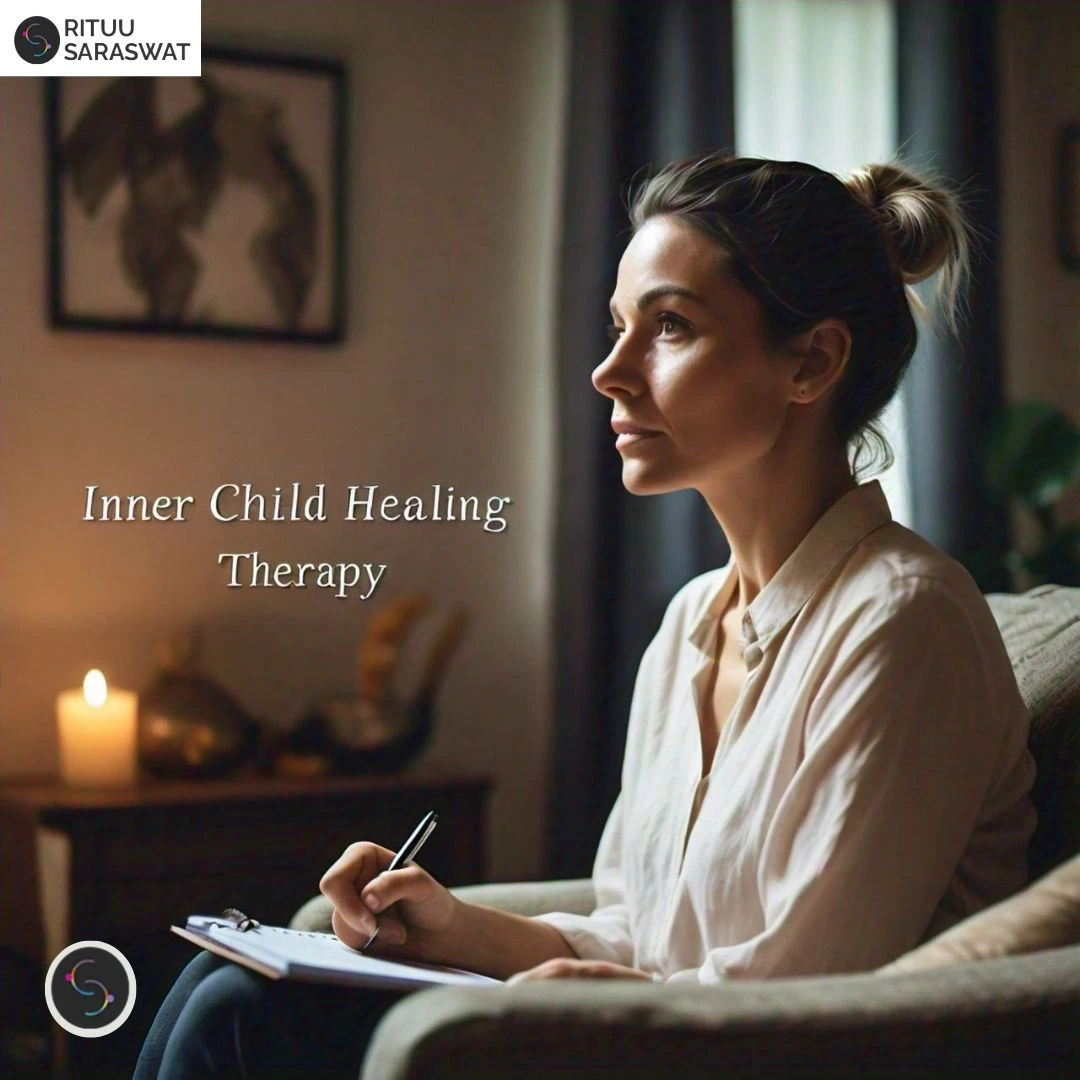
9 Hidden Signs That Inner Child Healing Therapy Can Transform Your Life
The inner child is the subconscious part of ourselves that holds our emotions, memories, and experiences from childhood. When the inner child carries unhealed wounds, these can manifest in our adult lives, often in subtle yet impactful ways. Recognizing the signs that your inner child needs healing is crucial for personal growth, emotional balance, and building healthy relationships. Let’s explore nine common signs, backed by everyday examples and insights from renowned inner child healing therapy experts.
Struggles with Self-Worth
You may find yourself seeking external validation or feeling like you’re never “good enough” despite your accomplishments. For instance, after receiving praise at work, you might immediately dismiss it as luck or feel anxious that you’ll soon be exposed as inadequate.
Why This Matters: Struggling with self-worth is a clear indicator that your inner child may have internalized messages from a young age that love and approval are conditional. These beliefs can lead to imposter syndrome and chronic self-doubt.
“When we are not in touch with our inner child, we constantly seek approval from others because we have not learned to approve of ourselves.” – John Bradshaw, inner child healing therapy expert.
Inner child healing therapy can help you recognize these patterns, break free from the cycle of seeking validation, and rebuild your sense of self-worth.
Fear of Abandonment
You may feel an intense fear of being left by friends or romantic partners, leading to clingy or overly controlling behaviors. For example, if your partner doesn’t reply to a message promptly, it might trigger anxiety and the fear that they are pulling away.
Why This Matters: This fear often stems from childhood experiences where emotional or physical abandonment occurred. It can create a constant sense of insecurity in adult relationships, making it hard to trust and relax.
“Healing your inner child means learning to be there for yourself in the way you wish someone had been there for you in the past.” – Dr. Shefali Tsabary.
Inner child healing therapy works by guiding you to confront these fears and learn self-soothing techniques, allowing you to build healthier, more secure attachments.
Difficulty Setting Boundaries
You might find it hard to say “no” to others, even when it means sacrificing your well-being. For instance, agreeing to take on extra work or saying yes to social events you don’t want to attend, just to avoid disappointing others.
Why This Matters: Struggling to set boundaries is often a sign that your inner child learned early on that pleasing others was the only way to earn love or stay safe. This can lead to burnout and resentment in adulthood.
“Healthy boundaries are the foundation of self-respect and self-love.” – Dr. Nicole LePera.
Inner child healing therapy can teach you how to set and maintain boundaries without guilt, empowering you to protect your energy and well-being.
Perfectionism
If you feel the need to always do things perfectly or become overly critical of yourself for small mistakes, your inner child may be carrying fears of not being “good enough.” An example could be spending hours reworking a project that’s already completed, driven by the anxiety of it not being “perfect.”
Why This Matters: Perfectionism is rooted in a fear of failure and the belief that your worth depends on flawless performance. This mindset can lead to chronic stress and hinder your ability to enjoy life.
“Perfectionism is a voice in your head saying, ‘If I do it perfectly, I’ll finally be worthy.’” – Brené Brown.
Inner child healing therapy helps you recognize where these perfectionist tendencies come from and teaches you to embrace imperfection as part of being human.
People-Pleasing Tendencies
Constantly trying to please others, even at the expense of your own happiness, is a common sign. You may agree with others’ opinions, suppress your own needs, or go out of your way to avoid conflict.
Why This Matters: People-pleasing often stems from a childhood where love and approval were conditional. The inner child learned that making others happy was a way to stay safe or be loved.
“People-pleasing is the fear of being disliked or abandoned, rooted in the inner child’s need for safety and love.” – Pete Walker.
Through inner child healing therapy, you can identify and dismantle these patterns, allowing you to prioritize your own needs without fear of rejection.
Emotional Reactivity
Experiencing intense emotional responses to seemingly minor issues may indicate that old wounds are being triggered. For example, getting overly defensive when receiving constructive criticism at work could be linked to childhood experiences of being unfairly judged.
Why This Matters: Emotional reactivity often signals unresolved trauma. When your inner child feels threatened, it responds with heightened emotions as a protective mechanism.
“Your emotional reactions are clues to where your inner child still needs healing.” – Lissa Rankin.
Inner child healing therapy offers tools to manage and soothe emotional triggers, promoting calm and mindful responses.
Struggling with Intimacy
If you find it difficult to form close, trusting relationships, your inner child may be afraid of vulnerability. You might avoid deep conversations or push people away when they try to get close.
Why This Matters: The fear of intimacy is often rooted in childhood experiences where trust was broken. This can lead to loneliness and prevent meaningful connections.
“The wounded inner child fears closeness because it associates love with pain.” – Charles Whitfield.
Inner child healing therapy helps rebuild trust by addressing past wounds and nurturing your ability to open up safely.
Persistent Guilt
Feeling guilty for prioritizing yourself or expressing your needs can be a sign that your inner child was made to feel selfish for wanting attention or care. An example is apologizing excessively, even when you haven’t done anything wrong.
Why This Matters: Persistent guilt can be paralyzing and prevents you from taking care of yourself. It stems from the inner child’s belief that prioritizing oneself is wrong or unworthy.
“Unresolved childhood guilt can manifest as the adult belief that taking care of yourself is selfish.” – Dr. Alice Miller.
Inner child healing therapy helps you understand the roots of this guilt and teaches you to prioritize self-care without feeling selfish.
Difficulty Trusting Yourself
You may constantly second-guess your decisions or rely on others to validate your choices. For example, asking multiple friends for their opinions before making a simple decision could indicate an unhealed inner child that learned not to trust their own judgment.
Why This Matters: Difficulty trusting yourself can lead to chronic indecision and dependency on others for approval. It hinders your ability to move forward confidently in life.
“Trusting yourself means re-parenting your inner child to know that they are safe to make their own choices.” – Teal Swan.
Inner child healing therapy helps you develop self-trust by addressing the underlying fears that prevent confident decision-making.
How to Heal Your Inner Child
Healing your inner child involves acknowledging and nurturing the part of you that holds your past emotional pain. Here are some steps to start the process:
- Practice Self-Compassion: Talk to yourself as you would to a child who needs reassurance. Use affirmations like, “I am enough,” or “It’s okay to make mistakes.” This helps to replace self-criticism with kindness.
- Journaling Exercises: Write letters to your inner childexpressing understanding and comfort. Let them know you’re there to support them. Reflecting on your feelings and experiences helps you process and heal.
- Visualization: Imagine your inner childin a safe space, and visualize yourself comforting them, playing with them, or simply being present. This helps create a sense of safety and connection.
- Set Boundaries: Practice saying “no” and protecting your energy to reinforce the idea that you deserve respect and care. Boundaries empower you to prioritize your well-being, a core aspect emphasized in inner child healing therapy.




